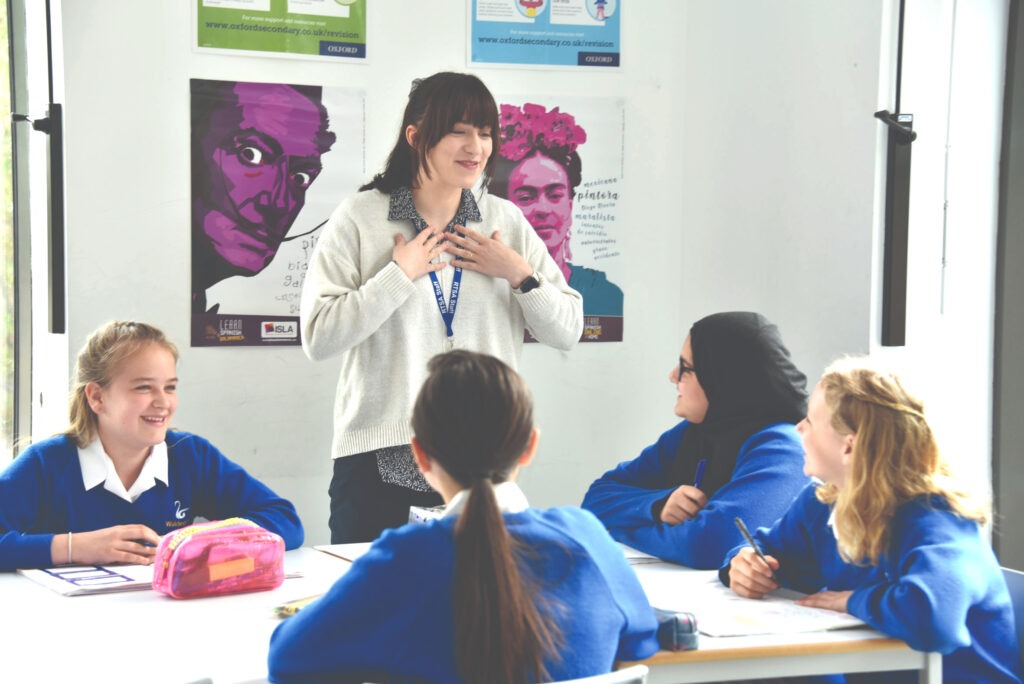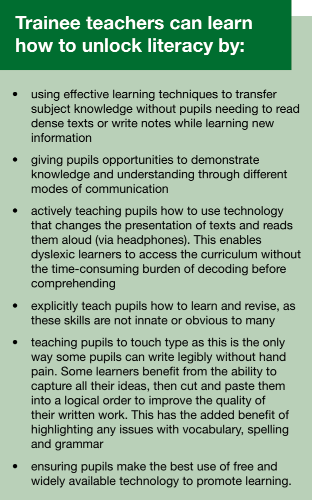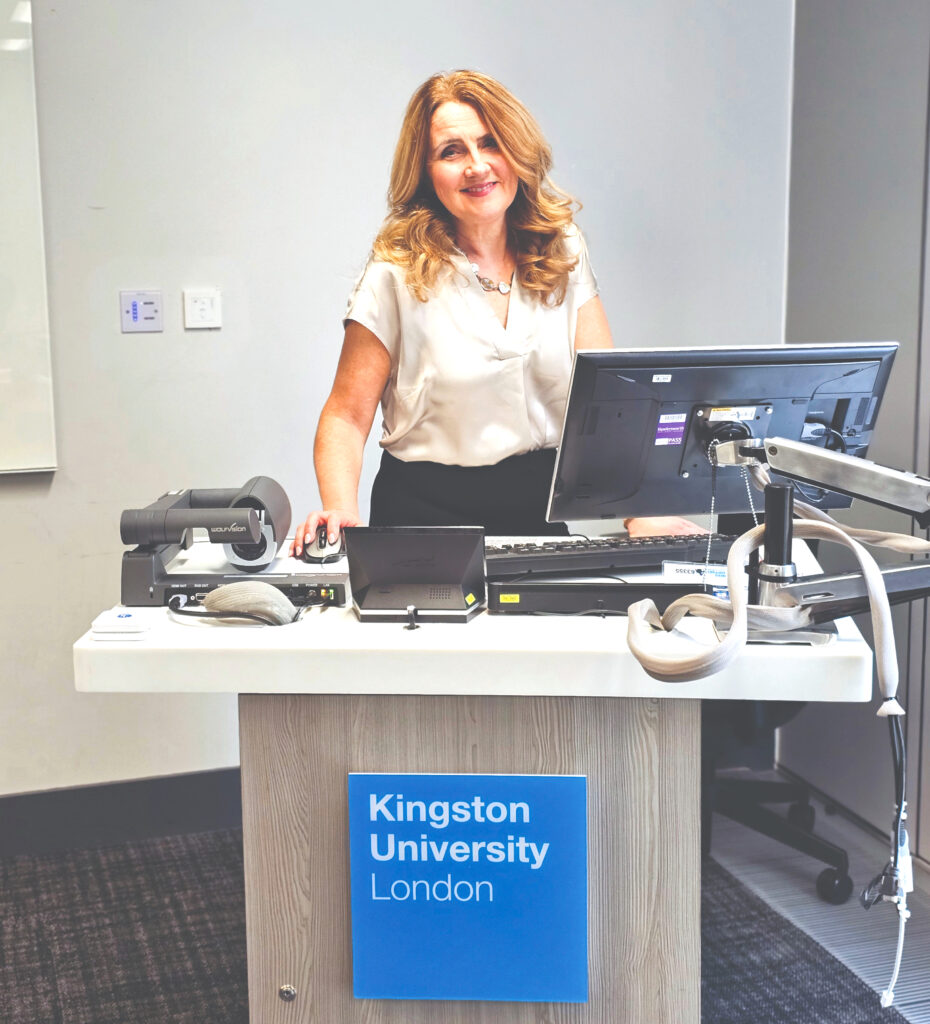Caroline Bateman didn’t struggle at school, despite being wickedly dyslexic. When her own dyslexic children began failing academically, she knew they just needed some help to access the curriculum. Now she’s part of an initiative to enlighten the next generation of teachers.

I have gained much satisfaction from helping dyslexic students thrive at school, but I have often felt frustrated, because I know that there are many more out there who would benefit from the same kind of support. There are many transformative strategies and technologies which can enable learners with SpLD to achieve their potential. Yet, to truly make a difference it is necessary to fundamentally change how we define what intelligence is, and what academic success looks like. Then we will be better equipped to use the strategies to create our own for individual specific learning needs. If we agree that intelligence is the ability to acquire and apply knowledge and skills, then many of the pupils I’ve worked with are quick thinkers, and others are gifted practically. They are more than capable of acquiring knowledge and skills. However, when traditional teaching methods are used in learning and assessment, the intelligence of less literate pupils can be missed. Bloom’s Taxonomy identifies higher order thinking skills as creativity and the ability to evaluate, analyse and apply knowledge. Remembering is the lowest skill in the pyramid and while some of my pupils struggle with their memory, many excel at the higher order skills. When pupils are expected to demonstrate their intelligence by memorising information or putting pen to paper these strengths can easily be missed.

Unless adequate support is put in place at an early stage, learners may mistakenly think they can’t learn. Too often I come across pupils who tell me that they have thought themselves ‘stupid’. No teacher would ever say this, but these pupils are aware that they are not able to do what their peers do easily. Because they make logical assumptions around this, they consider that they are not intelligent. This misconception damages self-esteem and can cause many to give up academically. Overcoming this is a far bigger barrier to success than overcoming their difficulties with reading and writing. Time is a precious commodity when working with these pupils, waiting to see if a pupil will catch up wastes valuable time and the longer it is allowed to continue the harder it is to reverse. Teachers have an immensely important role in identifying and equipping pupils with specific learning difficulties to acquire knowledge and achieve what they are capable of.

The KUDYT project isn’t about acquiring a handful of techniques, but learning why they should be employed. The intention is to help educators think differently about how to best utilise evidence-based strategies and to challenge prevailing myths and existing practices that may not be founded upon reliable research. Trainee teachers need to be competent in applying various research informed interventions and up-to-date technological knowledge. They need to feel confident when trialling these until the most effective way is found for the pupils with whom they’re working. The knowledge and skills taught are always prefaced with the need to understand that every child is different and what works for one child may not work for another. But this is why it is so important to foster a ‘try it’ attitude, so that trainee teachers build a repertoire of strategies that they can apply, adjust, adapt and create for learners, as they gain knowledge and experience over time.

Teachers may sometimes feel frustrated and even anxious when they cannot find the ways to effectively support their struggling learners. Learning how to maximise the learning potential of every child can be daunting even for the most experienced teachers, particularly when they are set ambitious targets and work in policy, financial, and social constraints. However, we can provide solutions that are achievable in this framework.
It is commonly accepted that education is a constantly evolving field of new ideas and innovations in practice. Sometimes this can feel overwhelming, but it is this precarious context that provides the conditions and opportunities for risk taking. It enables new ways of working to be tried out and realised in the classroom. If we accept that the curriculum is predominantly accessed by reading and assessed by writing, then we can acknowledge that the curriculum is not easily accessible to all pupils, particularly those with dyslexia and literacy difficulties.

Caroline Bateman
Caroline Bateman is an educator who has worked with many children and young people who have struggled to access the curriculum because of dyslexia and literacy difficulties.
[email protected]
The Kingston University Driver Youth Trust (KUDYT) provides enhanced knowledge and skills for trainee teachers.
youtube.com/@CarolineBatemanKUDYT













































